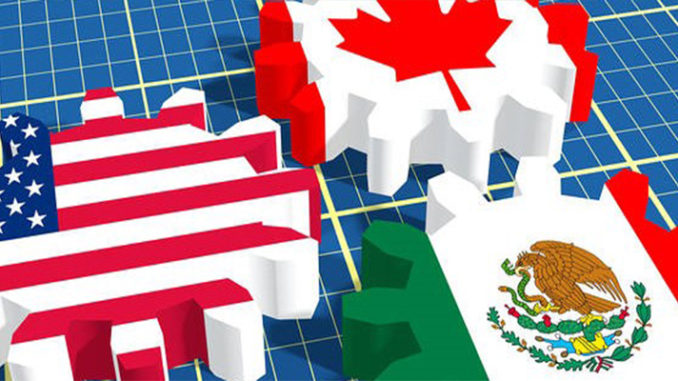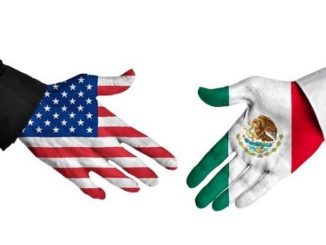
by Kaitlyn Ridel
A quarter century of largely tariff-free trade in North America has provided substantial opportunities for American manufacturers, farmers, services providers, and small businesses. U.S. trade with Canada and Mexico has quadrupled in this period, generating growth and jobs in all three countries.
More than 12 million American jobs depend on trade with Canada and Mexico today. Canada and Mexico are now the top two export destinations for U.S. small and medium-size businesses, more than 120,000 of which sell their goods and services to Canada and Mexico.
But the world has changed since the early 1990s when the U.S., Canadian, and Mexican governments last explored a continental trade pact. Back then, to offer one example, e-commerce didn’t exist, and it never occurred to trade negotiators to take it into account.
It is now easier than ever for consumers in the U.S., Canada, and Mexico to access goods and services from across North America – spurred by the advent of the internet and technology. But with this access also comes the need to modernize the terms of trade with Canada and Mexico in order to protect U.S. innovation and ensure our businesses can continue to see sustained growth in these international markets.
That is why it is so important for Congress to pass the United States-Mexico-Canada Agreement (USMCA). USMCA brings North American commerce into the 21st century with digital trade rules, intellectual property protections, and other updates for American businesses, while still maintaining the market access needed for companies to prosper and provide jobs for American workers.
Here are the key ways that USMCA modernizes NAFTA:
- Modernizes trade for the digital economy: USMCA creates best-in-class rules to foster U.S. growth in the digital economy for firms of all sectors and sizes. For example, the agreement guarantees the freedom to move data across borders and prohibits the forced localization of data, thereby ensuring continued growth for a dynamic area of international commerce.
- Protects intellectual property: The agreement secures stronger protections for the full range of patents, copyrights, and related rights, trademarks, designs, and trade secrets. It also contains strong enforcement tools to guard against counterfeiting and piracy in order to promote continued U.S. innovation that supports and creates well-paying jobs across all major sectors of the economy.
- Removes regulatory and technical barriers: USMCA promotes regulatory compatibility and best regulatory practices for ICT products, pharmaceuticals, medical devices, cosmetics, chemicals, and other products, while also improving rules prohibiting discriminatory technical barriers to trade.
- Creates customs efficiencies: In USMCA, customs procedures are modernized with regard to advanced rulings, simplified entry, risk management, single window, e-signatures, and self-certification of origin.
- Updates agriculture trade standards: Canada and Mexico account for nearly one-third of U.S. agricultural exports. In addition to securing the market access for American farmers, USMCA establishes modern, science-based sanitary and phytosanitary standards that are the strongest achieved in any trade agreement. It provides transparency and information sharing on measures impacting trade in biotechnology products.
- Enables greater financial services trade: USMCA ensures a level playing field for U.S. financial institutions, investors, and investments in financial institutions as well as cross-border trade in financial services on a nondiscriminatory basis.
- Maintains critical market access: Approval of USMCA will ensure U.S. farmers, manufacturers, and service providers can continue to access Canadian and Mexican markets, and guarantees that virtually all U.S. exports will enter these markets tariff-free. For Canada, it eliminates some remaining barriers facing U.S. dairy and poultry exports. It also prohibits import restrictions on remanufactured goods.
- Ensures fair competition: The agreement establishes rules to ensure that central government state-owned enterprises (SOE) do not distort competition in the marketplace by guaranteeing regulatory impartiality. USMCA requires that SOE decisions be commercially motivated. It also ensures that antitrust investigations are fair, transparent, and based on sound economic analysis.
To learn more about USMCA or to urge Congress to pass this agreement for the prosperity of American farmers, manufacturers, businesses, and workers, click here.



